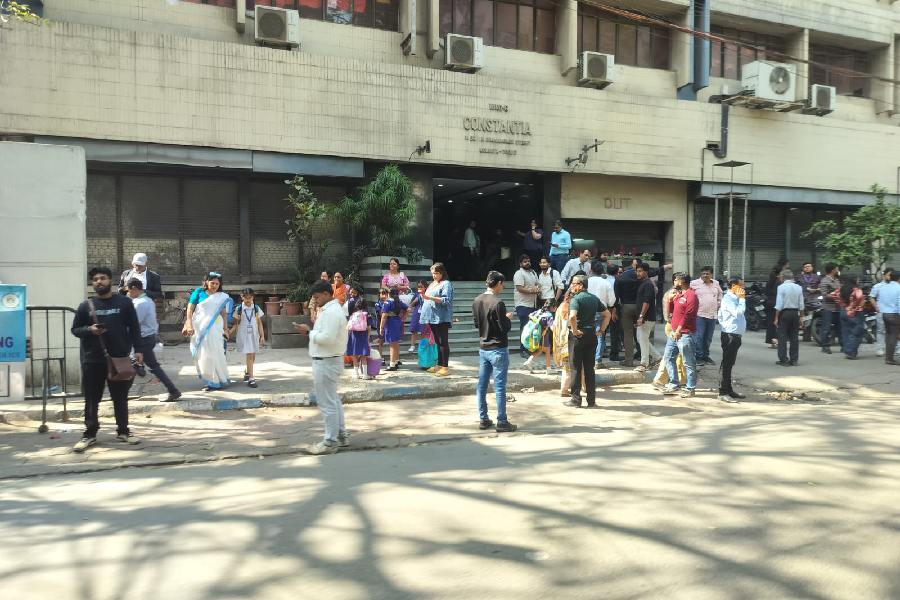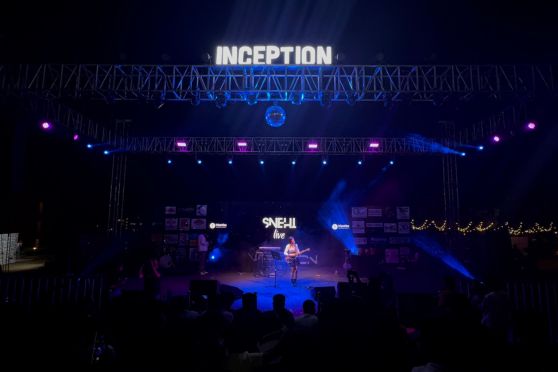 Friday, 27 February 2026
Friday, 27 February 2026
 Friday, 27 February 2026
Friday, 27 February 2026
At 7:30 a.m. on Sunday, bulldozers began tearing down homes in Madrasi Camp, a jhuggi cluster tucked beside the Barapullah drain in south Delhi’s Jangpura.
The demolition comes weeks after the Delhi high court ordered the clearance of slums along the drain to decongest the area.
Police stood guard as residents, many of whom have lived here for decades, protested with their belongings piled along the roadside.
The cluster, established in the late 1960s, has been home to over 400 working-class families — most of them Tamil-speaking migrants who settled in the city for better livelihoods.
“What should I say? They have looted us. We have nothing left now. 'Jaha Jhuggi Waha Makaan' is a lie. They lie about allocating homes. Everything they say is a lie,” a woman told IANS as her house was brought down.
“Right now, I don't even have the courage to speak about it,” she added, wiping her tears.
The Delhi high court had, on May 9, directed agencies like the Delhi Development Authority (DDA) and the Delhi Urban Shelter Improvement Board (DUSIB) to ensure proper rehabilitation of eligible residents before demolitions began.
The court specified that flats in Narela must be equipped with basic amenities, including fixtures and fittings, by May 20.
Government officials had earlier pasted a list of eligible families on the walls of the settlement on April 12.
Of the 370 households in Madrasi Camp, 189 were initially found eligible for relocation. A revised list later added 26 more families, taking the total to 215.
Shiva, who has lived in Madrasi Camp for 25 years, expressed concern about being relocated nearly 50 km away to Narela.
“There is no school for our children there. The house we have been allotted is broken and has no water or electricity,” he said on Saturday, referring to the government-allotted flats in Narela.
Still, dozens of families remain without a place to go. “We haven't even received the homes they claimed were allotted to us. Our children's education is being disrupted, and we don't know where to go,” said Neha, a daily wage worker.
CPI(M)’s Delhi unit released a statement on Saturday alleging that the relocation process violated the court’s orders. “Residents cannot be expected to move into housing that is still underprepared and unsafe,” the party said. They added that the flats lacked essential facilities such as water, electricity, doors and windows.
The party also raised concerns about school admissions for displaced children, stating that the timeline for rehabilitation had not taken the upcoming academic session into account. “The infrastructure was unfit for habitation, especially during Delhi's extreme weather,” it said.
The Delhi high court, in its order, had made the government’s responsibility clear. “The rehabilitation of the Madrasi Camp dwellers is essential for the de-clogging of the Barapullah drain. None of the dwellers can claim any rights beyond the right of rehabilitation, as the land is public land, which is encroached upon,” the court said in its May 9 order, according to Live Law.
South East District Magistrate Anil Banka said on Sunday the demolition was in line with the court’s directive. “This action is being taken as per court orders. The encroachments are being removed in compliance with the court’s directive. It was becoming difficult to clean Barapullah drain and the area had narrowed significantly. This was the primary reason for waterlogging in the locality during heavy rainfall. Eligible residents have been allotted flats in Narela. Today, around 370 jhuggis are being demolished.”
The demolition was initially scheduled for May 10 but was postponed to June 1. Residents had approached the Delhi High Court in a last attempt to stall the drive, citing lack of preparation and unsafe relocation sites.







